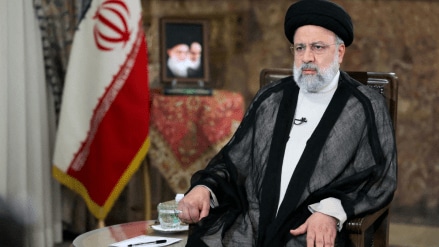In the wake of the tragic death of Iranian President Ebrahim Raisi in a helicopter crash, the Iranian government on Monday (May 20) announced that the country’s 14th presidential election will be held on June 28.
According to media reports, this decision was made during a meeting of key officials, including First Vice-President Mohammad Mokhber, who is now acting as interim President, Judiciary Chief Gholamhossein Mohseni-Ejei, Parliament Speaker Mohammad Baqer Qalibaf, Vice-President for Legal Affairs Mohammad Dehqan, and representatives from the Constitutional Council and Interior Ministry.
Iranian President Ebrahim Raisi and several members of his team, including Foreign Minister Hossein Amir-Abdollahian, were confirmed dead on Monday morning. The helicopter carrying them crashed in bad weather on Sunday near Varzaqan County, approximately 670 km from Tehran.
Article 131 of Iran’s Constitution
According to Article 131 of Iran’s Constitution, the First Vice-President takes over if the President cannot fulfil his duties and must organise a new presidential election within 50 days, as reported by Xinhua news agency.
At the meeting, officials laid out the election schedule: candidate registration will run from May 30 to June 3, and the election campaign will take place from June 12 to June 27. The Constitutional Council has given its initial approval to this timeline, according to IRNA.
This action is intended to ensure stability and continuity in Iran’s governance during this period of national mourning.
However, the death of President Ebrahim Raisi in a helicopter crash is unlikely to lead to immediate changes in Iran’s ruling system or its overarching policies, which are ultimately decided by Supreme Leader Ayatollah Ali Khamenei. However, Raisi was considered a top contender to succeed the 85-year-old supreme leader, and his death increases the likelihood that Khamenei’s son could eventually take on that role.
Raisi, a hard-liner and protege of Khamenei, became president in 2021 after the Guardian Council disqualified other prominent candidates, resulting in the lowest voter turnout in the history of the Islamic Republic. He succeeded Hassan Rouhani, a moderate who had served as president for eight years and defeated Raisi in the 2017 election.
How does Iran’s government work?
Iran conducts regular elections for its president and parliament, with all citizens eligible to vote. However, the supreme leader holds ultimate authority over all major policies, serves as the commander-in-chief of the armed forces, and controls the powerful Revolutionary Guard. The supreme leader also appoints half of the 12-member Guardian Council, which vets candidates for the presidency, parliament, and the Assembly of Experts—the body responsible for selecting the supreme leader, as AP reported.
While the clerics are theoretically there to ensure the republic adheres to Islamic law, in practice, the supreme leader manages the ruling system to balance various interests, promote his own priorities, and prevent any challenges to the Islamic Republic or his position at its helm.
